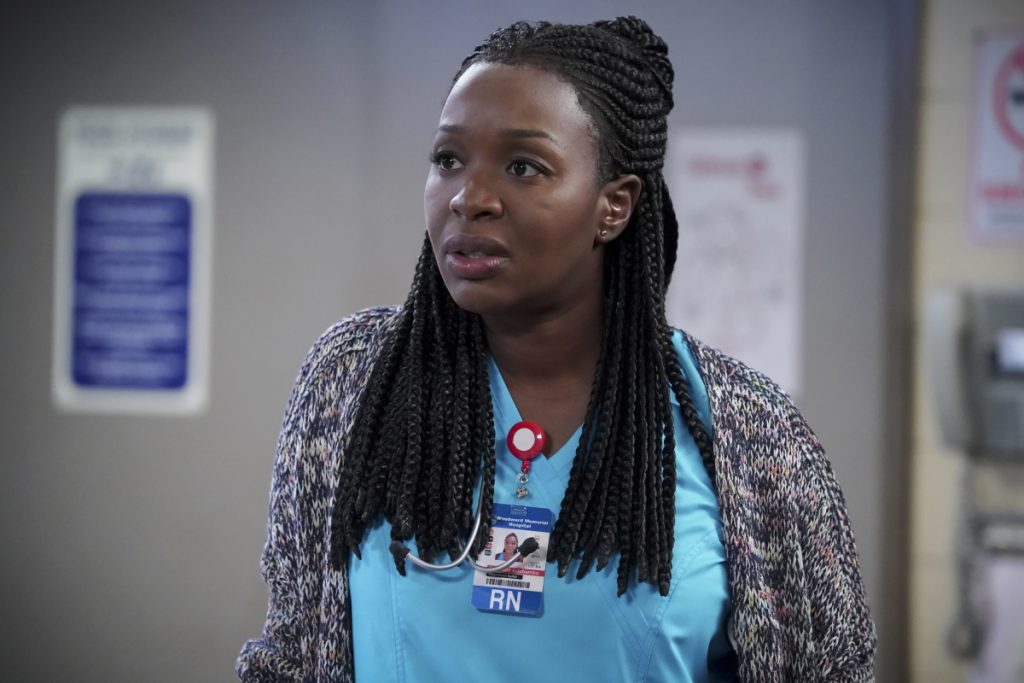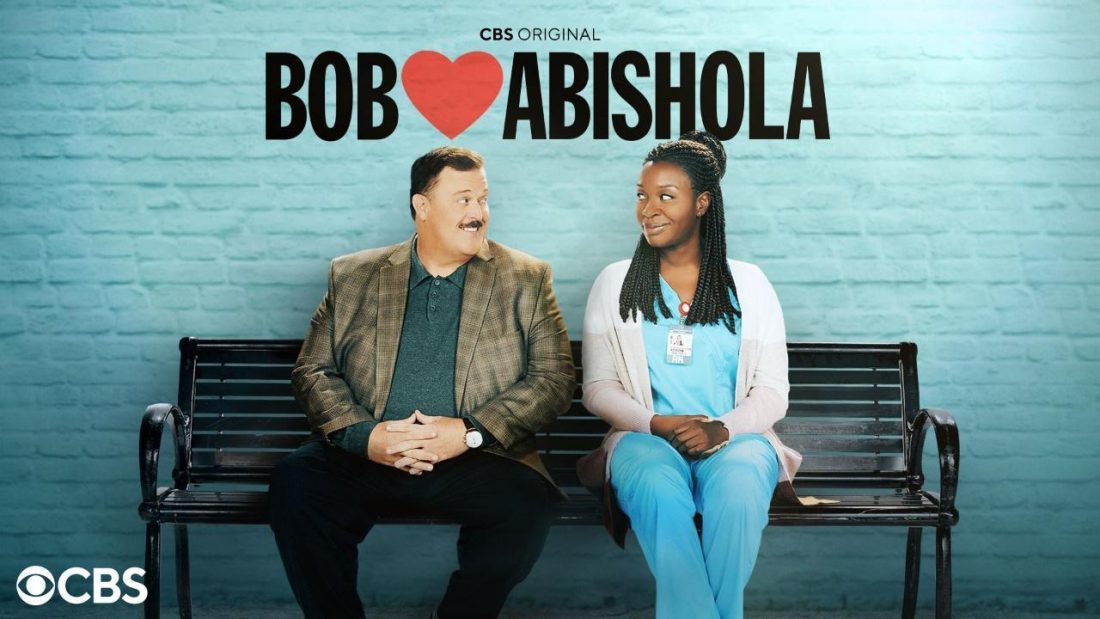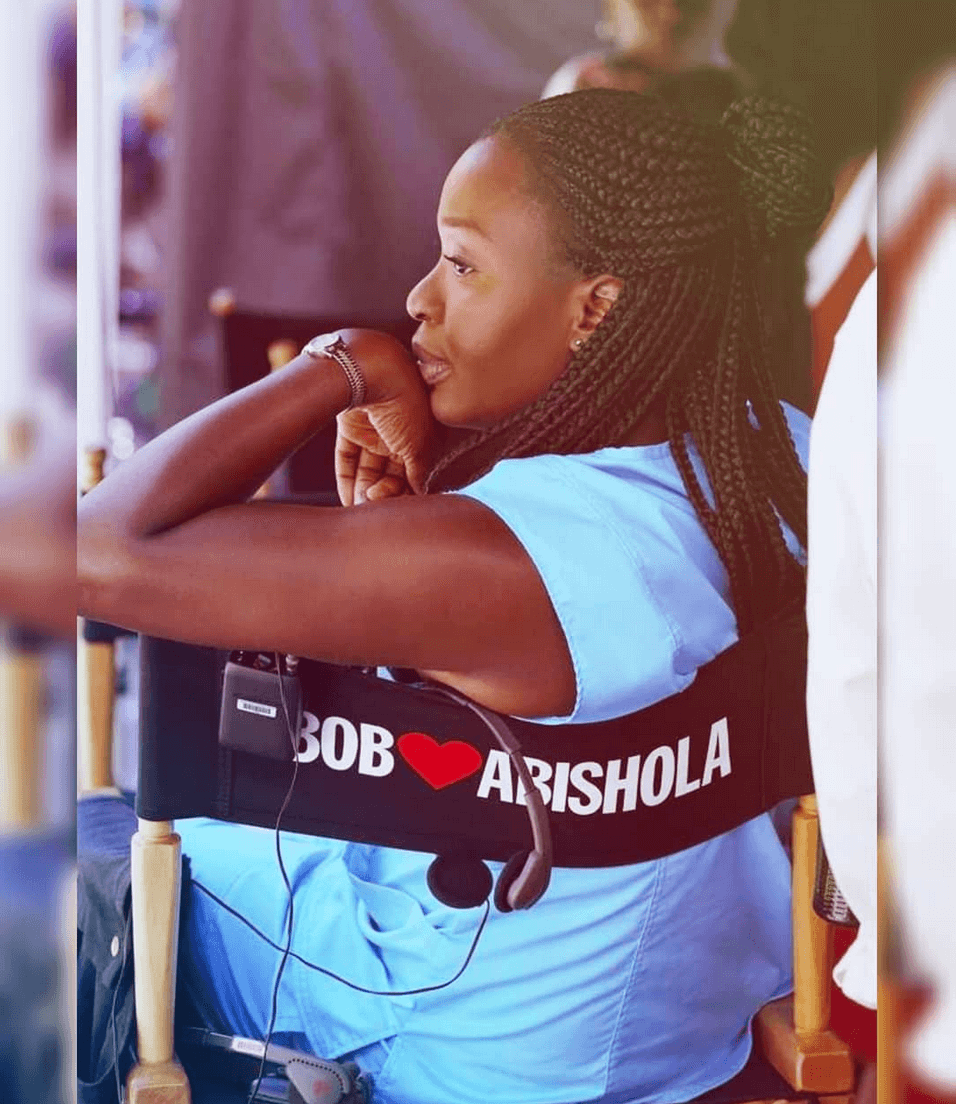The second series of Bob Hearts Abishola is currently underway in the US where it’s getting rave reviews. Folake Olowofoyeku talks to Melan about what it means to play Abishola in the show.

Bob Hearts Abishola tells the love story of a middle-aged compression sock businessman from Detroit who unexpectedly falls for his cardiac nurse, Abishola, a Nigerian immigrant, while recovering from a heart attack and sets his sights on winning her over. Undaunted by Abishola’s lack of initial interest or the vast differences in their backgrounds, Bob is determined to win Abishola’s heart, in this comedic examination of immigrant life in America.
Playing the role of Abishola, is Folake Olowofoyeku, a Nigerian who moved to the US to pursue a career in either law or politics to please her academic parents but took a detour and followed her passion to become an actress.
The youngest of 20 children, Folake Olowofoyeku’s decision has paid off. Her feature film credits include When They Could Fly, which earned her a Best Actress award at the prestigious ReelHeART International Film Festival in Toronto, Central & Broadway, for which she won Best Actress in a Fashion Film at the CinéFashion Film Awards, Female Fight Club, The Bride, The Child Within, and Hellbenders-3D, among others.
Television credits include guest roles on The Gifted, Modern Family, How to Get Away with Murder, Westworld and the Law & Order franchises. However, her most standout role is as Abishola in the popular CBS series. Ahead of the launch of series 2 in the US, Folake took time out of her busy schedule to talk to Melan about the impact of the show, her journey to becoming an actress and being a proud Nigerian.
Bob Hearts Folake is the first American sitcom on a major US network to feature a Nigerian family. What does this mean to you personally?
It is an amazing opportunity and responsibility. As a Black woman myself I feel I am doing a small part in introducing Nigeria and that culture to the world on a larger scale and to entertain.

Credit: CBS
How would you describe Abishola’s’s character in three words and why?
Abishola is a tenacious, hardworking, loving woman. She is a caregiver for her family and her focus is on the prosperity of her family, including her son.
“We are not just focusing on stereotypes; we are really diving into the characters and showing what makes them who they are.”
Would you say that the show’s portrayal of Nigerians is authentic?
I think it is the most authentic portrayal I have seen on international television. It is very nuanced. You get the whole range, and the writers and producers are making a huge effort to make sure these characters are not one dimensional. You see their ups, downs, their joy and their sadness. We are not just focusing on stereotypes; we are really diving into the characters and showing what makes them who they are.
What storyline are you most proud of so far in both series?
There are so many, but I especially love the dynamics between Abishola and her son. That was my experience growing up, wanting to be in the arts and not having any support. Abishola eventually acquiesces but it was a lot harder for me and having to move to another continent so that I could explore my creative talent. I am also very proud of the relationship between Bob and Abishola. It’s ground-breaking and beautiful and so focused on love.
Will the series take viewers to Nigeria as hinted in season 2?
I don’t know but I would love to see it. I am putting it out to the universe so that we can have one episode for the engagement, another for the introduction, another for the traditional wedding and the white wedding, the thanksgiving, the trip back and I would love to do all of it. It would change the game as no one has ever done that before, it would be beautiful.
The UK lost Gina Yashere, one of the creators of the show, to the US a few years ago. What is it like working with her?
Thank you for that and losing her! She is responsible for the authenticity in the writer’s room. We always say that it is important to have diversity and that starts with having people actually manning the story and that is what she does successfully. Gina uses some of her life stories too as I am sure many of the writers do.
How have people reacted to the show?
We are bringing in a whole diverse demographic to the show. It is not just a universal show about immigrants. It’s not just about Nigerian immigrants. There are Caribbean, white who identify with the diasporan community of coming to America and being hyper focused on education for their children. Americans are interested in learning this culture and are fascinated by it. Some had never even met Nigerians, and some identify with Bob and Abishola’s story. I have met numerous people on my Instagram who send me pictures of themselves saying “hey, we’re Bob and Abishola” and another woman who met her husband in a hospital as well. So, I think across the board we are drawing in a demographic that want to watch a lovely, heartfelt family story.
“We are bringing in a whole diverse demographic to the show.”
Taking it way back, what are your fondest memories of living in Lagos, Nigeria before you left?
I grew up in front of the beach and I love the smell of the beach and apparently knew the smell of ganja (marijuana) before I even knew what it was. I knew the smell but had no idea what it was. If you knew Bar Beach [popular beach in Lagos], what it was called back then, that was one of the hallmarks of that location. I miss Nigerian food, the Nigerian accent, I miss the language. Those are my fondest memories and I miss the weather; I love the heat.
Can you tell us about when you lived in London in your youth?
My father had a deep connection to London. He came via boat in the thirties or forties and studied law at the London School of Economics. Prior to that he was a teacher in Nigeria. He bought his first property in the UK for a couple of hundred pounds. He was one of the founding fathers of Nigeria and a member of the Queen’s Counsel and an active member in Nigeria’s independence. All of this meant spending a lot of time in England and so it was a special place for him, and we have a lot of family members that still live out there. We are not there often as a family but during the holidays and the break from school we caught up with family there. It was my second home until I went to New York. Once I found New York I didn’t go back. But when things get back to normal, I’d love to come over.
“She got to see me win my first award in acting before she passed away.”
In the beginning there was some resistance to you becoming an actress from your family. How did you win them over?
I just lied to them when I moved to New York. I was supposed to study economics and go to law school and I did start in economics. There were days when I would sit and try to picture myself living the life of a lawyer and what it looked like for different attorneys, but I just couldn’t reconcile myself with it. It didn’t feel right in my body intuitively and I rely on my intuition a lot.
I took it upon myself to explore things that did feel right I started out with a minor in data and a major in economics and then eventually it was undeniable, this [acting] was the lane I was supposed to occupy. When I graduated with my BA was when I revealed to my mum that I was graduating in theatre. She would come to all my fashion shows and musicals when I was in New York – I played Sally Bowles in Cabaret and loved all of it and she would go back home and tell my dad and family. So I won them over eventually. She got to see me win my first award in acting before she passed away.

Image credit: Instagram
You’re a musician and we hear you have new music dropping soon, would you tell us about that?
The first single is going to be an ode to all things melanin and appreciation of all things Black. I play electric guitar and percussion. Some people describe my delivery as spoken word, Kanye-ish but I wouldn’t say it is. We can call it afro alternative for now, because really that’s what is. It is afro, folk, some fantastic fusion, acoustic guitars, it sounds folkish, pretty much nothing you would have heard of. Check my socials for details of when the album will be dropping.
Finally, in twenty years when you look back on your career what do you hope to have achieved by then?
I would hope I have inspired folks to be more loving and less judgemental and created a path for someone like me that wants to be in the arts but doesn’t have the support of their family.
Watch Bob Hearts Abishola on Amazon Prime
Follow Folake Olowofoyeku on Instagram @the.folake.












